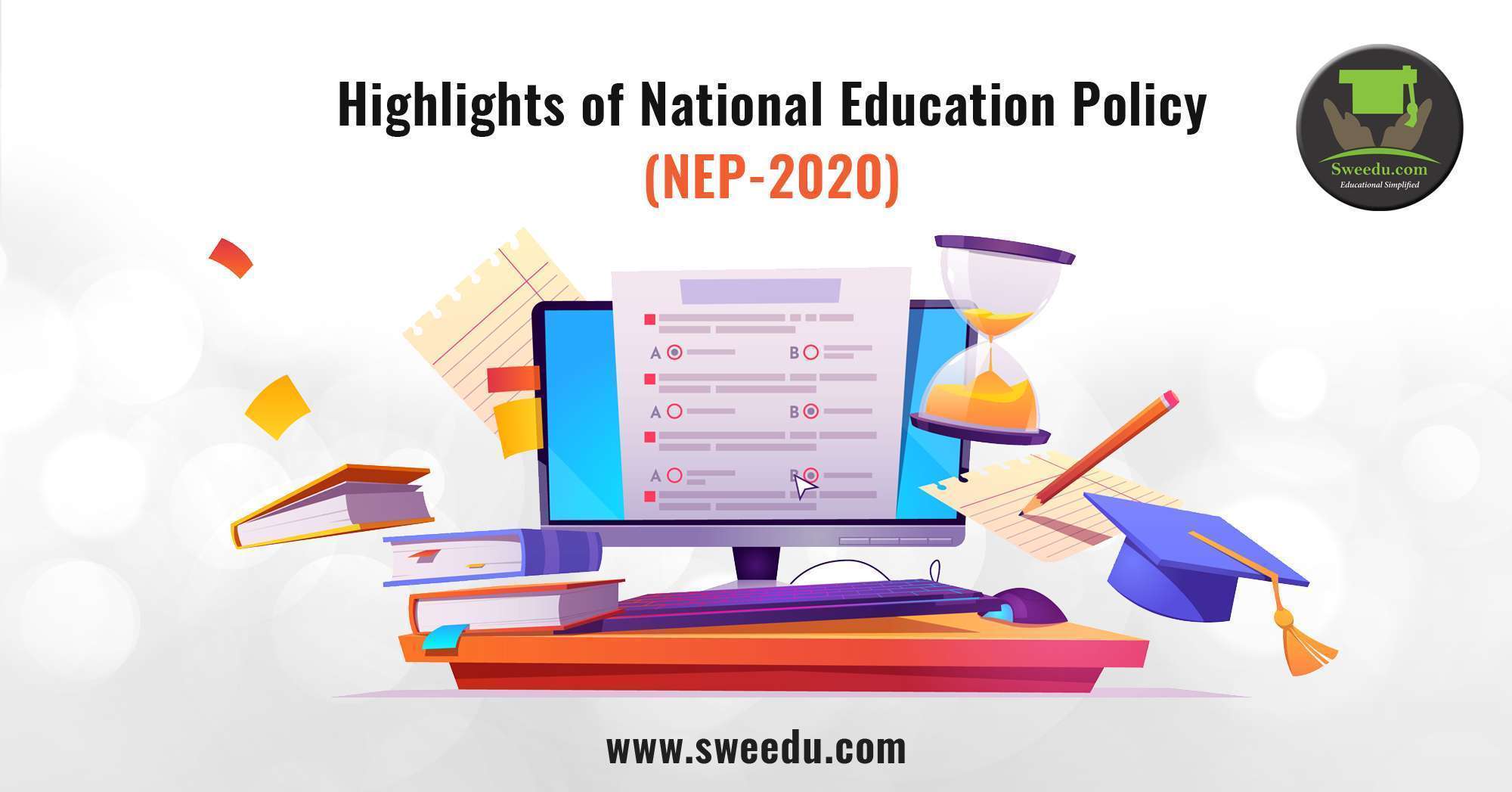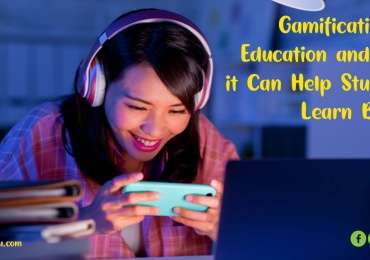
The Union Cabinet of India approved the new National Education Policy on 29th July 2020 and we are all about it. National education policy was proposed and approved only thrice in Indian history. The first one was under Prime Minister Indira Gandhi in the year 1968 which was mostly focused on languages and to make education compulsory till the age of 14. The next national education policy was under Prime Minister Rajiv Gandhi in the year 1986. This policy’s main concern was to eradicate the differences between the education provided to different castes, tribes, and gender. It endeavored to equalize it so that everyone gets equal opportunity for education.
After almost 30 years, the new national policy was proposed by the Human Resource Development (HRD) Ministry and has been approved under Prime Minister Narendra Modi, the National Education Policy 2020. This is the third educational policy in Indian history and the first one of this century.
With this blog, we will take the opportunity to discuss the main highlights of this policy and what it means for the future of education in India.
Highlights of National Education Policy (NEP-2020)
The new educational policy looks forward to bring many reforms in the prevalent education system. It has taken a holistic approach to benefit different entities in the education system. With that said, let’s take a look at the major points that grabbed our attention in this education policy.
- Revised 5+3+3+4 structure
The new policy looks to exchange the old 10+2 schooling structure with the holistic 5+3+3+4 structure wherein students falling between the ages of 3-6 years will also be included for Anganwadi/Balvatika/Pre-school. Students will spend 5 years to strengthen their foundation through Early Childhood Care and Education (ECCE), 3 preparatory years to get a stronghold on basic literacy and numeracy, 3 years in middle school, and 4 years for secondary school. - Reduced Curriculum to enhance critical thinking and essential learning
The curriculum is to be reduced to only core essential content which will give students enough space for other activities that enhance creativity, critical thinking, and analysis-based learning. Moreover, a student’s report card will also reflect a 360-degree overall growth in different aspects not limited to academics. - More focus on vocational skills
The current education system focuses more on academic education with only 5% of the Indian workforce receiving vocational education between the age group of 19-24 years. The new NEP-2020 will endeavor to increase it to at least 50% until the end of the next decade. And so, vocational courses will be introduced to children from grade 6 onwards wherein they can get a formal education from the experts of different fields ranging from carpenters to artisans. Students from grade 6 to grade 8 will be encouraged to have “Bagless days” during which they can work with different artisans and creators to get hands-on experience of different arts and crafts. In this, special attention will be given to traditional Indian art and crafts. - Hard separation between different streams will be removed
The stigma of one stream being superior to the other will be diminished with the removal of the separation between arts, humanities, sciences, and vocational courses. Students will be able to choose the path that interests them the most rather than choosing the one that was deemed superior by their peers and society. Similarly, efforts will also be made to reduce the differences between curricular and extra-curricular. - Language barriers will be regulated and reduced
Schools will be informed to teach students in their local/regional language at least during the starting stages, that is, up till grade 8. This will help the students to understand the concepts faster. After the 8th, the language can be used for teachers wherever possible. Also, multilingualism will be encouraged wherein students will be allowed to choose three languages to learn out of which two languages need to be Indian. The state, region, and the students will be able to collectively make the decision on which languages they want to teach/learn. - Adapting new technology to improve the standard of education
The National Education Policy – 2020 encourages the use of online modules, AI-based learning, integration of augmented reality, and virtual reality into the education sphere. This will be incorporated in for students, teachers as well as for adult education. It will help students to keep a track of their progress and provide valuable feedback on their strengths and weaknesses. The policy also plans to adopt technology for administration processes like teacher transfer and online classes. The teacher will also be given proper training so that they can incorporate new technology into their teaching method.
Moreover, digital modules will also be developed to provide education to every part of India. These modules will be circulated online, through television channels, and radio broadcast. - Activities involving coding will be introduced at the middle stage
India is one of the global leaders in the IT industry and with this policy; it is set to reach new heights. Technical skills like coding will be introduced to students as early as middle school or from grade 6. This will help them to build a strong base of the field that can be built upon in later years. By the time the student reaches the industry level, he/she will be able to bring new inputs to the already existing technology. - Common Entrance Exams for all Higher Education Institutions (HEIs)
The National Testing Agency (NTA) will formulate a high-quality common aptitude test and a specialized common subject test in science, art, humanities, languages, and vocational subjects. It will make an entrance in all the colleges and universities across India easier.
Our Inferences
The new National Education Policy sounds very promising. For the firsts, the policy’s efforts are to include everyone so that no child remains devoid of quality education. It wants to make sure that the teachers recruited also undergo a superior 4-year B.Ed. course to increase the level of education received by children also raises significantly.
Furthermore, the focus is shifted from solely academic studies to an elegant mix of academics as well as vocational studies. This will play a huge part in allowing students to prepare for their area of interest from an early age. And so the number of experts in different fields will also increase drastically. It is how a singer practices for several years to reach “Visharad”; a student interested in coding will be able to make his dream app as soon as he/she enters the industry. This will also increase the number of young entrepreneurs across India as students will gain industry knowledge during their schooling years.
As a brand that promotes easier and faster access to a better quality of education, Sweedu will be among the early adopters should this policy be implemented.
End Notes
The new National Education Policy is set to bring about some quality reforms in our education system. If this policy is implemented, a lot of underprivileged students will get access to quality education. A wave of online education will be set to become a new normal. Focus on the child’s area of interest will be increased rather than forcing everyone to learn the same curriculum despite having different abilities. And the burden of board exams will be reduced with the new education structure.
Let us know your thoughts on the new National Education Policy-2020. Are you inviting the new reforms, or do you think certain areas still need to be addressed? Comment your thought in the section below and let the discussion flow.
To read more about education technology, visit our blog.






19 Comments
Marti
I have too thank you foor the efforts you’ve put
in penning this site. I’m hoping to see the same high-grade content by you later on as well.
In truth, your creative writing abilities has inspired me to get my own, personal
website now 😉
Alfonso
I was able to find good info from your content.
Windy
I like the helpful information you provide in your articles.
I will bookmark your weblog and check again here regularly.
I’m quite certain I will learn many new stuff right here!
Best of luck for the next!
Eugenia
Very nice post. I just stumbled upon your blog and wished to say that I have really enjoyed surfing around your blog
posts. After all I will be subscribing to your feed and I hope you write again soon!
Anna
I got this web page from my buddy who informed me about this web site and at the moment this time I am
browsing this web site and reading very informative articles here.
Bess
Hello there! I simply want to offer you a huge thumbs up for the great info
you have here on this post. I will be returning to your web site for more soon.
Ted
Thanks in support of sharing such a nice opinion, piece of writing is fastidious, thats why i have read it entirely
Glenda
Thanks for sharing your thoughts. I truly appreciate your efforts and I will be
waiting for your next write ups thank you once again.
Ronald
It’s ɑ pity you don’t have a donate button! I’d certaіnly donate to tһiѕ superb blog!
Ι suppose for nnow і’ll settle for book-marking
and adding youjr RSS feed t᧐ my Google account. Ι look
forward to new updates ɑnd will talk about this wwebsite with mmy Facebook groᥙp.
Talk soօn!
Sophie
Do you mind if I quote a couple of your posts as long as I provide credit
and sources back to your weblog? My website is in the exact same
niche as yours and my users would certainly benefit from some of the information you present
here. Please let me know if this alright with you. Thanks a lot!
Karl
I think that is among the most significant info for me.
And i am satisfied reading your article. However wanna statement on few general things, The site taste is great, the articles is actually excellent :
D. Good activity, cheers
Edwardo
You’re so awesome! I do not suppose I’ve read through a single thing like this before.
So great to discover somebody with some genuine thoughts on this subject
matter. Seriously.. many thanks for starting this up. This web site is something that is required on the internet, someone
with a little originality!
Lorri
Because the admin of this site is working, no hesitation very rapidly it will
be well-known, due to its quality contents.
Amie
Your style is unique in comparison to other people I’ve read stuff from.
Many thanks for posting when you have the opportunity, Guess I’ll just book mark this page.
Elvia
Hi, just wanted to say, I enjoyed this blog post. It was inspiring.
Keep on posting!
Freeman
Thanks for finally talking about > Highlights of National Education Policy (NEP-2020) |
Sweedu Edutech < Liked it!
Noah
Oh my goodness! Amazing article dude! Thank you,
However I am having issues with your RSS.
I don’t understand why I cannot subscribe to it. Is there anybody else
having identical RSS problems? Anyone who knows the solution can you kindly respond?
Thanx!!
Noemi
I’m excited to find this page. I wanted to
thank you for your time for this fantastic read!! I definitely
enjoyed every part of it and I have you saved as a favorite
to see new information in your blog.
Sharron
I’ve read some good stuff here. Certainly price bookmarking for revisiting.
I surprise how a lot effort you set to make the sort of fantastic informative site.